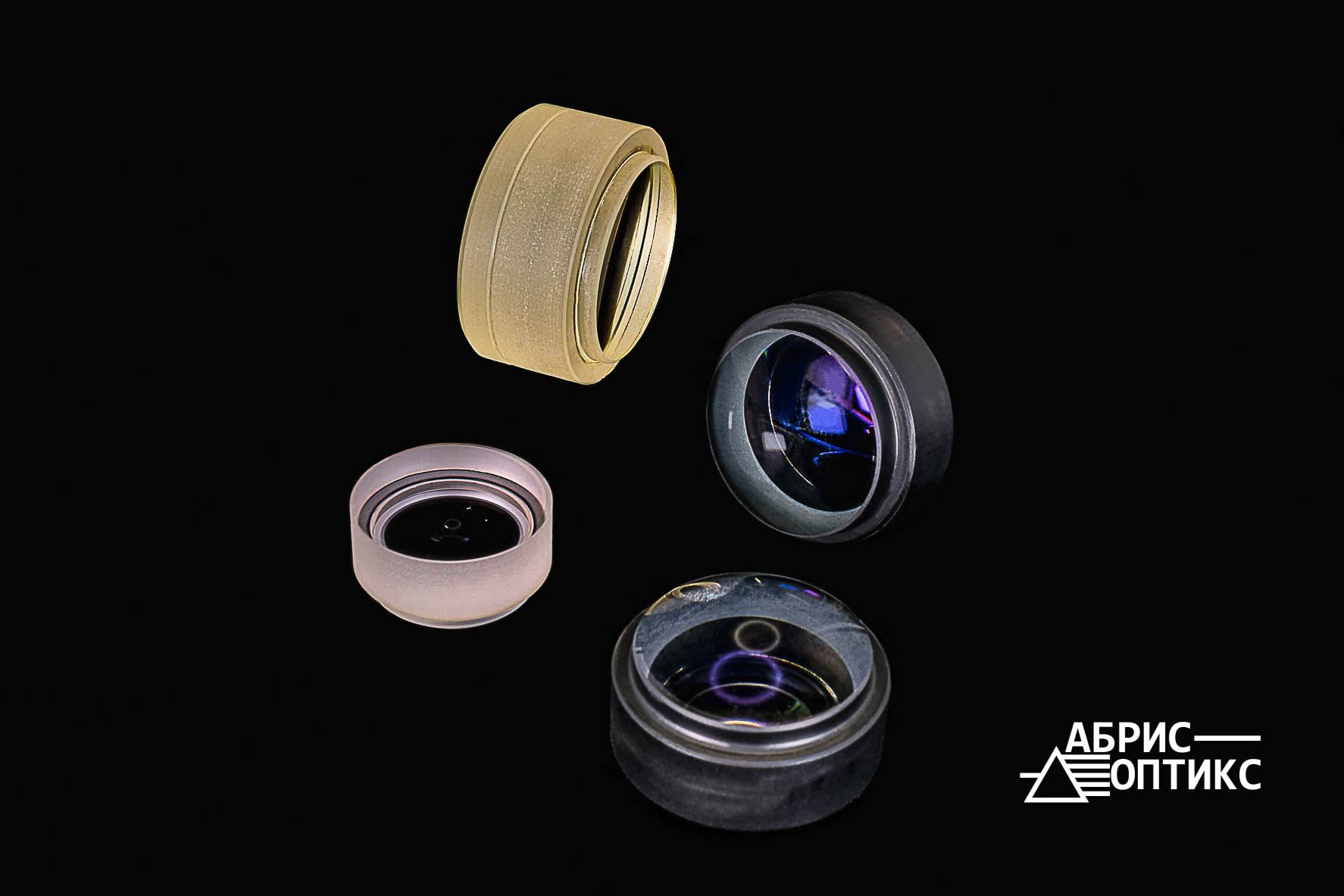Doublets are optical elements consisting of two lenses cemented together to form a single optical group, while triplets are made of three lenses cemented together. This design significantly improves image quality by correcting aberrations that are difficult to eliminate with a single lens. Doublets are widely used in optics to enhance image sharpness and contrast.
How are doublets manufactured?
The process of manufacturing doublets includes several stages:
- Selection and preparation of two lenses with different optical properties that complement each other in distortion correction.
- Precision grinding and polishing of lens surfaces to ensure perfect contact.
- Additional processing, including the application of anti-reflective coatings to reduce reflections and increase light transmission.
- Cementing the lenses using special optical adhesives that provide strong and transparent bonding without air gaps
| Specification | Standard | Achievable |
|---|---|---|
| Diameter | 5 — 35 mm | 1.5 — 150 mm |
| Material | “Colorless Optical Glass” 13659-78, “Quartz Optical Glass” 15130-86 | “Colorless Optical Glass” 13659-78, “Quartz Optical Glass” 15130-86, as well as OXARA and Schott |
| Diameter tolerance | +0.0/-0.2 mm | +0.0/-0.05 mm |
| Thickness tolerance | +/-0.2 mm | +/-0.05 mm |
| Centration | <0.2 mm | <0.05 mm |
| Surface quality | P = I – IX | P = 0 – 10, 0 – 20, 0 – 40, I – V |
| Local defect (at 633 nm) | 0.5 fringe | 0.3 fringe |
| Focal length tolerance | +/-2% | +/-0.05% |
| Clear aperture | >90% of diameter | >95% of diameter |
| Coating | As per customer request | As per customer request |
